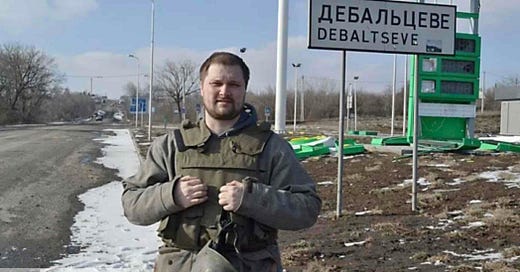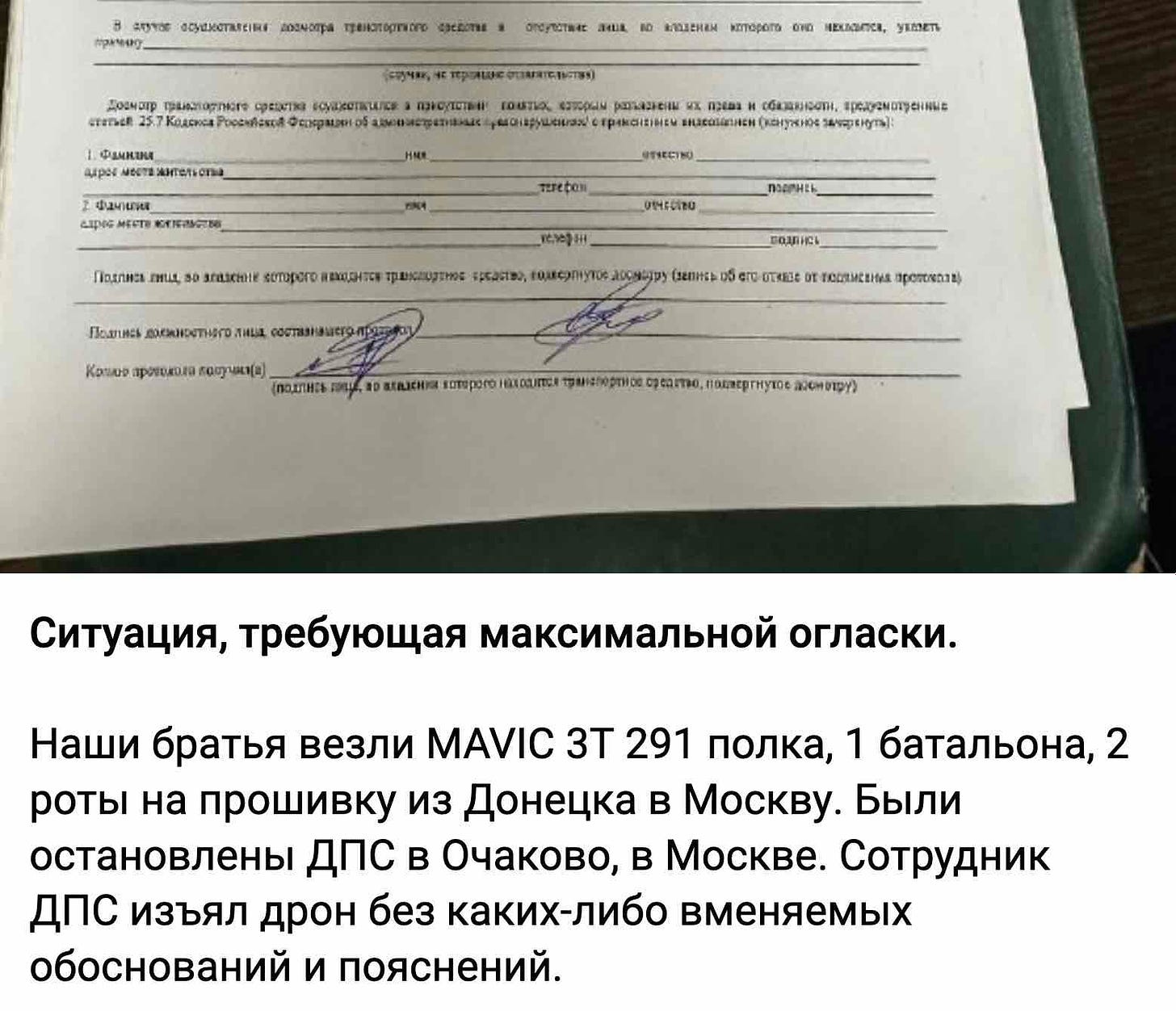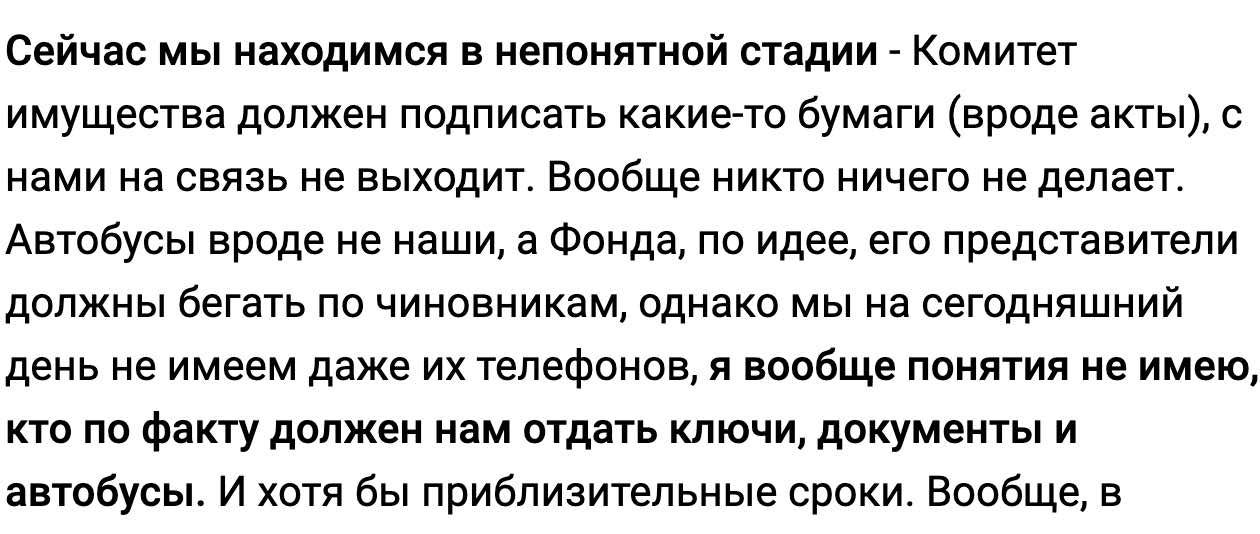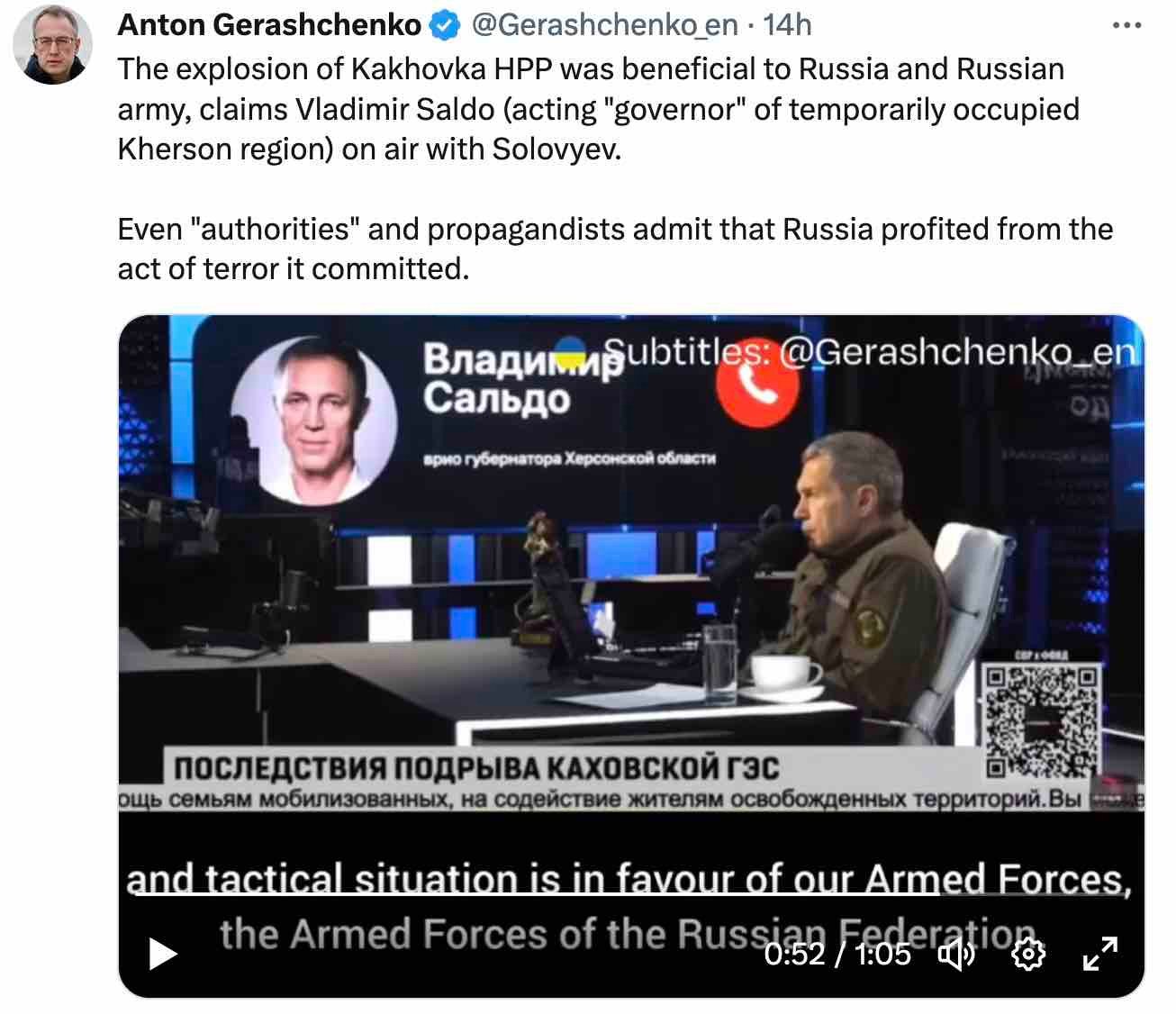Ballad of a Russian blogger
Where even the best "krisha" in Moscow can no longer protect you...
A couple of months ago I briefly mentioned the problems faced by one of the Russian military bloggers I follow - one Roman Saponkov. Recently he has posted an update, which I will describe here in detail, because I think this is the perfect summary of what this war is actually about.
Roman Saponkov is no ordinary blogger, he has direct sources in the combat zone and he is frequently visiting the fighting troops (via Twitter account of TV Seznam)
To recap: military bloggers on both sides launch crowdfunding campaigns to help “their” friendly units, usually getting exclusive access to firsthand combat reports. On our side this is severely limited by Ukrainian OPSEC, but Russian authors often publish very interesting stuff straight from the trenches (that’s why I follow them!).
In this particular case, Saponkov was crowdfunding not only the purchase of drones for “his” friendly unit, but also their maintenance. Much like other mechanical devices, drones need to be serviced every now and then.
In March Saponkov’s vans carrying drones for maintenance were confiscated by the local authorities of the “Kherson oblast”. While Russia claims to have annexed it, for all practical purposes nothing changed. Just like other occupied territories, this is a stateless zone governed by warlords.
The level of lawlessness seems to be surprising even for a Russian guy, such as Saponkov. In Moscow the police might try to extort a bribe from you, but they don’t steal cars on a daily basis.
Saponkov attempted to retrieve his cars with the help of the Russian-appointed “governor” of the Kherson oblast Vladimir Saldo and senator Konstantin Basyuk. In Russia it’s called “krisha”, meaning (loosely) “protection”, and if you have a really strong one (for instance, your “krisha” is Putin’s daughter), you can get away with murder. Literally.
This is why some people go to prison for calling this war “war” or for “discrediting the armed forces”, and other people can openly discredit whoever they want. The latter have good “krishas”, the former do not. A “military blogger” by definition needs a good one, because formally everything he does is illegal in Russia.
Court in Krasnoyarsk punieshed city alderman Igor Grinev for using the words “abandoned Kherson” with 30 000 roubles fine. That’s “disreditation of Russian army”, it did not abandon Kherson, it was a succesful regrouping! (via Telegram channel of Igor Girkin, who can say whatever he wants, because he is from Moscow and he has a good “krisha”, unlike some poor shmuck in Krasnoyarsk)
From what I read it seems that the mainland “krishas” do not work in the occupied areas. When you argue with an actual policeman (corrupt, but real), the trump card “I call the chief of police right now” might help you. But it will not work with a gang of paramilitaries pretending to be police.
This was probably the death scenario of one of the leaders of the “2014 Donbass separatism”, Igor Mangushev. Like most of the “Donbass separatists”, he was born in Moscow, of course.
On 4 February 2023, he was stopped by paramilitaries on a checkpoint in Luhansk. The “policemen” saw a rich guy and they wanted to rob him. According to military blogger Murz, his friend, his response was typical for a well-connected Muscovite: “don’t touch me, I know Girkin! I know Prigozin!”. What might work in Moscow, does not work in the occupied Luhansk. They just shot him for resisting robbery.
Most Russian bloggers forgot about Mangushev. He was a figure as famous as Tatarsky, but today he is a non-person, like in Orwell’s “1984”: he never existed. Murz is the only blogger demanding a formal investigation on Mangushev’s death. Due to such unreasonable demands, Saponkov called Murz a fool (“durak”).
Saponkov is no fool, he knew his chances. He surrendered his cars without a fight. But his governor-level “krisha” also failed to help.
From his own description, the main issue is the lack of proper registration of the confiscated cars. Technically the self-appointed “policemen” returned them after the Saldo’s intervention, but he can’t drive them, because now they lack proper license plates.
The “Kherson oblast” cannot issue them, because this is an entity that exists and does not exist at the same time. On the one hand, formally this is a part of Russia (since the annexation). On the other, the annexation was make-believe, the border is still there, and Russian motor vehicle registration system does not operate in the occupied territories. It’s a grey zone outside any legal system (even Russian).
Another pro-Russian pro-war activist complaining that the occupation authorities in Donbas simply stole (“confiscated”) Mavic drones belonging to the 291st regiment he was carrying to from Donetsk to Moscow for maintenance. No explanation was given (via Telegram channel of Saponkov)
After long negotiations between Saponkov, Saldo and the “Kherson police”, the solution was found. The vans will be “nationalised”, transferred to the Kherson Region Property Committee (whatever that is), and said Committee will lease them to be used by Saponkov and his volunteers.
He was reluctant to accept this solution, because it still meant that the lease can be revoked at any time. But apparently there was no other choice.
On April 11, the Property Committee formally assumed the ownership of the vehicles. On May 26 the legal paperwork was finally ready - the Property Committee agreed to lease the cars to a “Kherson Territorial Development Fund” (whatever that is).
And then… nothing happened. The vans are held incommunicado. “Nobody does anything… I don’t know their phone numbers… I don’t even know who should deliver the keys and the paperwork to us” - writes Saponkov.
The funniest part of the Saponov’s blog note. In bold he emphasised that “situation is beyond understaiging” and that “he doesn’t even know who is supposed to deliver him the keys and paperwork and when it is supposed to happen” (via Telegram channel of Saponkov)
It seems that someone at the “Property Committee” or the “Kherson police” found another use for these vehicles. So why return them for Saponkov? Saldo’s authority does not seem to be good enough for the warlords and paramilitaries. At the end of the day, he is a disposable figurehead.
Saponkov is ending this story declaring: “I wouldn’t complain if was only about me, but the fighting in Donbas intensifies, and our boys are without our drones and support”. Like the true-believer communists in the communist years, he fails to connect the dots and see the obvious: that this semi-legalised car theft is not a deviation of the Russian system, this IS the system.
They didn’t invade Donbass and Crimea in 2014, and the rest of the country in 2022, in order to improve anybody’s life. All this talk about “denazification and demilitarisation” or “protecting the Russian speaking population” was nothing but a pretext to loot and profiteer.
The occupation authorities pretend to be “governors”, “mayors” or “policemen”, but in reality they are there to steal under a semi-legal framework of something called “Property Committee”. If Russia really wanted to “protect their own kin”, they would follow the “annexations” with the integration of Russian political institutions with the occupational regimes, but this simply does not happen.
We know that in Eastern Europe, because most of our countries experienced Russian or Soviet occupation in the past. We know the stories from our grandparents and history books. So this is no surprise for us that Russians do the Russian thing once again.
The blowing up the Kakhovka dam causes disbelief in the West. “Would they blow their own dam, hurting their own people?” - this question seems natural west of the Oder river, but for us it’s too obvious to discuss.
The Russian world is based on very strict hierarchy. On the very top there are the Moscow and Petersburg based oligarchs - the people allowed to ride on the “VIP lanes”, bypassing the traffic jam in these cities.
Some layers below, there are regular Moscow residents with good “krisha”, such as said Saponkov. Further down, there are people allowed to legally reside in the “good” cities, but lacking “krisha”, and thus with very limited career options (and actually punishable for “discrediting the armed forces”). Even further down the ladder, there are people living in the deep country (“glubinka”), but still ethnically Russian. Good for them, because thanks to this, they are not on the bottom yet. Below them there are the enslaved minorities - Buryats, Kalmuks, Tajiks etc.
The people in the “occupied territories” are the actual very bottom of the “Russian world”. The troops on the front don’t care about their lives more than the “Property Committee” cares that the troops won’t get Saponkov’s drones.
Saldo and Soloviev talk in agreement that blowing up the dam was actually a good thing for Russia
Russian world is a “dog eat dog” world. The disposable figurehead Saldo does not care about the humanitarian disaster in his region - he is happy about the flooding because it hinders the Ukrainian offensive, so he will be the make-believe governor a bit longer. Kirill Stremousov, the equally disposable “mayor” of Russian-occupied Kherson, was killed the day Russians left the city - he was no longer needed to “legalise” the robbery. Saldo should expect a similar fate once Russians leave the region.
Am I a Russophobe? Maybe, but this is only because I am a Russophone. I understand their language and I read them. And this is the image of the Russian world I get from reading Saponkov, Romanov, Girkin, Pegov, Kashevarova etc.
And it’s not like they are anti-war. The are so pro-war and pro-Putin they crowdfund supplies for the army. And they get robbed by the people who are also pro-war and pro-Putin, but for slightly more practical reasons.









There's an update on Saponkov's vans. That final weird institution that was supposed to hand them to him - simply refused to do so. "Nyet!". They also refused to provide any explanation. It seems that's it.
My opinion on things like death of "mayor" of Kherson was that he was executed more spontaneusly by armed thugs he was giving orders to just few days earlier. He surely was given a small detachment of "security". They might not have had any orders but their leader decuded this annoying office worker thst ordered him around no longer has any backing.